262 start with F start with F


When, at the end of the First World War, Marshal Ferdinand Foch, soldier and popular hero, assumed the role of self-appointed peacemaker, he proved himself a source of embarrassment and irritation. Challenging Georges Clemenceau's right to negotiate the peace settlement, Foch attempted to arrange a peace which, according to him, would provide France with security, but which, according to his civilian superior, would have lost France's urgently needed allies.
French internal conflict in civil-military relations during the Versailles Peace Conference was thus primarily between Clemenceau and Foch, both inspired by the most patriotic of motives.
Foch versus Clemenceau gives a vivid account of the diplomatic maneuvers among France, its allies, and Germany during the period of the Conference. It sketches the Rhineland separatist movement in 1919--with Dorten's abortive, even amusing putsch, the Palatine-Rhineland Rebellion--as incidental background to the momentous struggle between Foch and his field commanders on the one hand and the President of the Council, Clemenceau, on the other over their differing conceptions of a realizable peace which could guarantee France's security.
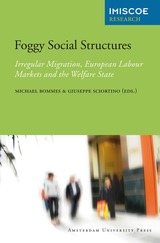

Although Richard Hooker (1554–1600) is now known principally as the author of the Laws of Ecclesiastical Polity, in his lifetime the Tractates and Sermons brought him greater notoriety. Hooker’s views on justification, the perseverance of faith, and the relationship of the Church of Rome to the reformed Church of England were widely reported, and texts of the tracts were extensively circulated in manuscript.
Thanks to the meticulous editing of Laetitia Yeandle, Curator of Manuscripts at the Folger Shakespeare Library, the contemporary impact of these debates can now be appreciated for the first time. These tracts provide a unique perspective on the turbulent world of late Elizabethan theology. In addition, they lay the doctrinal foundations of the Laws of Ecclesiastical Polity itself and—with the excellent commentary of Egil Grislis, Professor of Theology at the University of Manitoba in Winnipeg, enable us to trace the intellectual formation of sixteenth-century England’s most innovative and provocative theologian.
The volume includes a newly discovered letter; three newly attributed sermon fragments; and analysis by P. F. Forte of Hooker’s distinctive preaching style.

The writings of Richard Hooker are of central interest to those studying English Renaissance thought and literature. In this, the third volume of a much-needed critical edition of the Works of Richard Hooker, are the posthumous books of the Laws of Ecclesiastical Polity. Hooker planned the Laws in eight books, but he died shortly after publication of Book Five. Books Six, Seven, and Eight, which contain his analysis of jurisdiction, episcopacy, and the royal supremacy, are here transcribed from versions that have the most authority. The volume also includes Hooker’s autograph notes toward those texts (brought to light by P. G. Stanwood in the course of his research) and the contemporary notes by George Cranmer and Edwin Sandys on a lost draft of Book Six. Mr. Stanwood’s introduction lays to rest all doubts about the authenticity of the last three books as we have them, doubts current since publication of Walton’s Life of Hooker in 1662.
This edition, sponsored by the Folger Library, is providing authoritative texts to serve as a basis for the scholarly reappraisal of Richard Hooker’s writings that is presently underway.

Richard Hooker is the first major voice of Anglican theology, and his defense of the Elizabethan Church against the attacks of the Puritans set the prevailing tone of Anglicanism for centuries to follow. Through his eloquent treatise on ecclesiastical law the medieval political thought of Thomas Aquinas became a part of the English political heritage, to be used by such writers as Locke, Burke, and Coleridge. The Laws of Ecclesiastical Polity is also a primary statement in English of a theory of natural law. Finally, we must turn to Hooker if we are to understand the intellectual background of the Renaissance, for he luminously sets forth the ethical, political, and religious assumptions of his age.
The Folger Library has answered a long-felt need in sponsoring this critical, old-spelling edition of Hooker’s Works, prepared with all the expertise modern scholarship can bring to bear. Six scholars share the editorial responsibility, consulting their eighteen-member Board of Advisers as necessary. The texts for the edition are based on fresh transcriptions of the earliest and most authoritative documents, in many cases manuscripts written or corrected by Hooker himself or contemporary transcripts of these. The critical apparatus for each text records substantive variants among the authoritative documents as well as departures in accidentals from the copy text. The aim of the apparatus is to enable the interested reader to reconstruct the authority underlying the text.
The Preface and Books I–V of the Laws of Ecclesiastical Polity, Volumes I and II of this edition, represent all of Hooker’s work published in his lifetime. These volumes were prepared by Georges Edelen, Professor of English at Indiana University, and W. Speed Hill, Associate Professor of English, Herbert H. Lehman College, City University of New York.

We turn to Richard Hooker to understand the intellectual background of the Renaissance. He sets forth in his writing the ethical, political, and religious assumptions of his age. This magnificent old-spelling edition of Hooker’s works has long been needed, and is being greeted with universal admiration.
Volume Four presents the text of the first and only major attack on the Laws of Ecclesiastical Polity—namely, A Christian Letter, 1599—with Hooker’s marginal notes made on his own copy of the Letter; and the more extensive essays which he left in manuscript, written in preparation for a published reply. The importance of these notes and essays lies in their expansion of some of the more controversial points made in the Laws, and in the light they shed on Hooker, his personality, method, and sources.
John Booty’s Introduction and substantial commentary place Hooker’s arguments firmly in their historical and theological contexts.
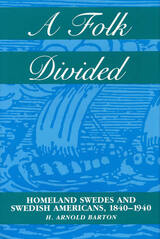
In this unique longitudinal study of how a divided people relate to one another, H. Arnold Barton outlines dilemmas created by the great migration of Swedes to the United States from 1840 through 1940 and the complex love-hate relationship that resulted between those who stayed and those who left. During that hundred-year period, one Swede out of five voluntarily immigrated to the United States, and four-fifths of those immigrants remained in their new country. This study seeks to explore the far-reaching implications of this mass migration for both Swedes and Swedish Americans.
The Swedes were a literate, historically aware people, and the 1.2 million Swedes who immigrated to the United States offer a particularly well-documented and illuminating case study. Barton has skillfully woven into the text translations of little known published and unpublished Swedish sources from both sides of the Atlantic, to embody—in haunting human terms—both what was gained and what was lost through emigration.
Past studies have traditionally shown ethnic mobilization to be a defensive reaction against the exclusive nativism of resident Americans. Barton convincingly demonstrates, however, that the creation of a distinctive Swedish-American identity was at least equally an expression of the immigrants’ need to justify leaving their homeland to their former compatriots and to themselves by asserting a rightful and unique place within the Swedish national community. He concludes that the relationship between Swedes and Swedish Americans was essentially similar to that experienced by other peoples divided by migration, and that the long debate over the United States and emigration at its deepest level reveals both hopes and fears most conspicuously symbolized by America and "Americanization" in an increasingly integrated world undergoing the relentless advance of modernization.
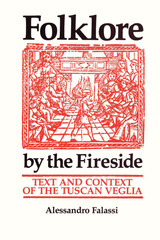
For centuries, social life in rural Tuscany has centered around the veglia, an evening gathering of family and friends at the hearth. Folklore by the Fireside is a thorough and insightful study of this custom—from the tales, riddles, lullabies, and folk prayers performed as the small children are put to bed to the courtship songs and dances later in the evening to the anti-veglia male gossip, card games, and protest songs originating in the tavern.
Alessandro Falassi skillfully correlates the veglia to the rites of passage and family values of an agrarian society. Although the impact of mass media and other factors has tended to weaken the tradition, even today Tuscan children are taught to behave and adolescents are guided along the conventional path to adulthood, courtship, and marriage through veglia folklore.
This is the first work to deal systematically with Tuscan folklore from a semiotic and structural viewpoint and to examine the veglia as a means of handing down traditional values. It is important not only for its careful, detailed description but also for its rigorous methodology and theoretical richness.
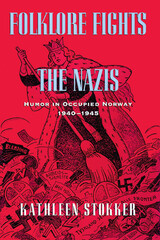
In relating this dramatic story, Kathleen Stokker draws upon her many interviews with survivors of the Occupation and upon the archives of the Norwegian Resistance Museum and the University of Oslo. Central to the book are four “joke notebooks” kept by women ranging in age from eleven to thirty, who found sufficient meaning in this humor to risk recording and preserving it. Stokker also cites details from wartime diaries of three other women from East, West, and North Norway. Placing the joking in historical, cultural, and psychological context, Stokker demonstrates how this seemingly frivolous humor in fact contributed to the development of a resistance mentality among an initially confused, paralyzed, and dispirited population, stunned by the German invasion of their neutral country.
For this paperback edition, Stokker has added a new preface offering a comparative view of resistance through humor in neighboring Denmark.

From methods of preparing suovabiergu (smoked reindeer meat) in Sápmi, to celebrating graduation by “running the falls” at Uppsala University in Sweden, to massive folk music festivals in Finland and tales of supernatural visitors bestowing baby names in Iceland, folklore offers unique insights into the everyday life of Nordic society. The study of Nordic folklore began in the nineteenth century, when early folklorists imagined that the true character of a nation could be found among the tales of the peasantry. Today, the theories, tools, and institutions developed by influential folklorists in the Nordic region continue to lead the way in documentation, preservation, and analysis of folklore.
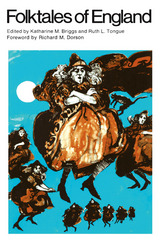
"This is a fine, homely feast, immediately intelligble. . . ."—Times Educational Supplement
". . . should be of special concern to Americans since many of the tales are parallel to or the source of our own folk stories."—Choice
"This is entertainment, to be sure, but is also part of man's attempts to comprehend his world."—Quartet
"Folktales of England is by all odds the most satisfactory general collection of folktales to come out of England since the advent of modern collection and classification techniques."—Ernest W. Baughman, Journal of American Folklore
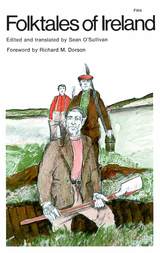
"Without doubt the finest group of Irish tales that has yet been published in English."—The Guardian
"O'Sullivan writes out of an intimacy with his subject and an instinctive grasp of the language of the originals. He tells us that his archives contain more than a million and a half pages of manuscript. If Mr. O'Sullivan translates them, I'll read them."—Seamus Heaney, New Statesman
"The stories have an authentic folktale flavor and will satisfy both the student of folklore and the general reader."—Booklist
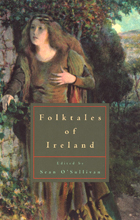
"Without doubt the finest group of Irish tales that has yet been published in English."—The Guardian
"O'Sullivan writes out of an intimacy with his subject and an instinctive grasp of the language of the originals. He tells us that his archives contain more than a million and a half pages of manuscript. If Mr. O'Sullivan translates them, I'll read them."—Seamus Heaney, New Statesman
"The stories have an authentic folktale flavor and will satisfy both the student of folklore and the general reader."—Booklist
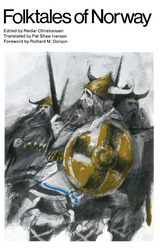
"The translation is excellent, retaining the traditional Norwegian style . . . the tales themselves will also appeal to the interested layman."—Library Journal
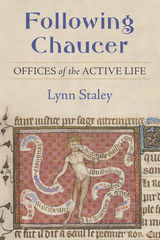
Following Chaucer: Offices of the Active Life explores three representative figures—the royal woman, the poet, and the merchant—in relation to the concept of “office,” which Cicero linked to the health of the republic, but Chaucer to that of the common good. Not usually conjoined to the term “office,” these three figures, situated in the active life, were not firmly mapped onto the body politic, which was used to figure a relational and ordered social body ruled by the king, the head. These figures are points of entry into a set of questions rooted in Chaucer’s understanding of his cultural and historical past and in his keen appraisal of the social dynamics of his own time that also reverberate in the centuries after Chaucer’s death.
Following Chaucer does not trace influence but uses Chaucer’s likely reading, circumstances, and literary and social affiliations as guides to understanding his poetry, within the context of late medieval English culture and the reshaping of the concept of these particular offices that suited the needs of a future whose dynamics he anticipated. His understanding of the importance of the Ciceronian concept of office within the active life, his profound cultural awareness, and his probing of the foundations of social change provide him with a keen sense of the persistent tensions and inconsistencies that are fundamental to his poetry.

This is the first systematic study of patterns of social mobility in Ireland. It covers a recent period—the 1960s—when Ireland was undergoing rapid economic growth and modernization. The author thus was able to test the widely accepted hypothesis that growth weakens class barriers. To his surprise he found that it did not. Social mobility increased somewhat, but among mobile men the better jobs still went to those from advantaged social class origins. Despite economic development and demographic change, the underlying link between social origins and career destinations remained unchanged.
In chapters on education, life cycle, religion, and farming, Michael Hout shows how inequality persists in contemporary Ireland. In the last chapter he reviews evidence from other countries and concludes that governments must take action against class barriers in education and employment practices if inequality is to be reduced. Economic growth creates jobs, he argues, but economic growth alone cannot allocate those jobs fairly.
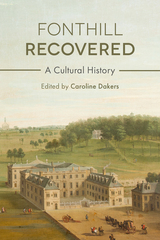
Fonthill Recovered draws on new research to explore the rich cultural history of this place where little remains today—a tower, a stable block, the ruins of what was once a kitchen, and an indentation in a field. The first half of the book traces the occupation of Fonthill from the Bronze Age to the twenty-first century. Some of the owners surpassed Beckford in terms of their wealth and political power—and even, in one case, their sexual proclivities. They include Charles I’s Chancellor of the Exchequer and the richest British commoner of the nineteenth century. The second half of the book consists of essays on specific topics, examining such crucial areas as the complex history of the designed landscape, the sources of the Beckfords’ wealth and their extensive art collection, and the recent appearance of the Abbey in a video game.
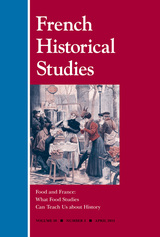
This special issue offers a broad range of social and cultural insights into the history of French gastronomy. At a moment when French cuisine no longer dominates the world of fine dining, the history of French food has drawn increasing attention in the academic world. The contributors address topics spanning the seventeenth to the twentieth centuries, such as coffee’s relationship to slavery and exoticism; the promotion of terroir to an aspiring middle class; the contrast between the romanticized images of Parisian shop girls and their efforts to survive on street food in the early twentieth century; the "standard meal" imagined by nineteenth-century nutritionists and the divergent reality of meager lunches for the working class; and the inequitable experience of wartime deprivation. The articles in this issue both model how the study of the culture of food can ground our understanding of France’s place in the world and illuminate questions of nationalism, global networks, gender, race, ethnicity, and class.
Contributors: Martin Bruegel, Bertram M. Gordon, Julia Landweber, Philippe Meyzie, Kenneth Mouré, Erica J. Peters, Patricia A. Tilburg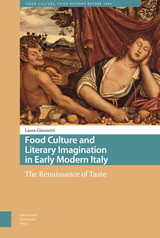
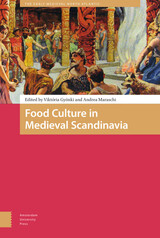

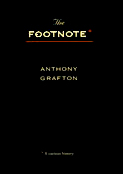
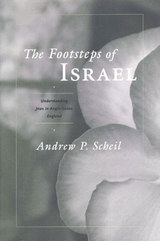
---Roberta Frank, Yale University
"The Footsteps of Israel is a fascinating study of a pervasive stereotype. Scheil's analysis of how Jews, with no real physical presence in Anglo-Saxon England, captured the imagination of writers of the period, is a superb achievement."
---Louise Mirrer, President and CEO, New-York Historical Society
"The elegance of Scheil's prose weaves a unifying thread through the vast literary and historical tapestry he presents, moving with grace from Latin to Old English, from Bede to later authors, from Wordsworth and Blake to modern writers. He speaks elegantly of these texts' conversations with the past, and the Jews emerge as both enemies and spiritual antecedents of the 'New Israel' of Anglo-Saxon England."
---Stephen Spector, State University of New York, Stonybrook
Jews are the omnipresent border-dwellers of medieval culture, a source of powerful metaphors active in the margins of medieval Christianity. This book outlines an important prehistory to later persecutions in England and beyond, yet it also provides a new understanding of the previously unrecognized roles Jews and Judaism played in the construction of social identity in early England.
Andrew P. Scheil approaches the Anglo-Saxon understanding of Jews from a variety of directions, including a survey of the lengthy history of the ideology of England as the New Israel, its sources in late antique texts and its manifestation in both Old English and Latin texts from Anglo-Saxon England. In tandem with this perhaps more sympathetic understanding of the Jews is a darker vision of anti-Judaism, associating the Jews in an emotional fashion with the materiality of the body.
In exploring the complex ramifications of this history, the author is the first to assemble and study references to Jews in Anglo-Saxon culture. For this reason, The Footsteps of Israel will be an important source for Anglo-Saxonists, scholars of late antiquity and the early Middle Ages, scholars of medieval antisemitism in general, students of Jewish history, and medievalists interested in cultural studies.
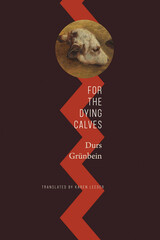
In his four Lord Weidenfeld Lectures held in Oxford in 2019, German poet Durs Grünbein dealt with a topic that has occupied his mind ever since he began to perceive his own position within the past of his nation, his linguistic community, and his family: How is it possible that history can determine the individual poetic imagination and segregate it into private niches? Shouldn’t poetry look at the world with its own sovereign eyes instead?
In the form of a collage or “photosynthesis,” in image and text, Grünbein lets the fundamental opposition between poetic license and almost overwhelming bondage to history appear in an exemplary way. From the seeming trifle of a stamp with the portrait of Adolf Hitler, he moves through the phenomenon of the “Führer’s streets” and into the inferno of aerial warfare. In the end, Grünbein argues that we are faced with the powerlessness of writing and the realization, valid to this day, that comes from confronting history. As he muses, “There is something beyond literature that questions all writing.”
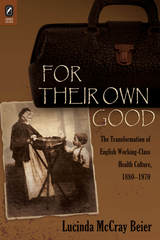
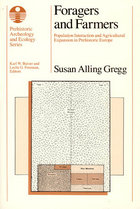
Gregg examines anthropological, ecological, and archaeological dimensions of prehistoric population interaction. She then examines the ecological requirements of both crops and livestock and, in order to identify an optimal farming strategy for Early Neolithic populations, develops a computer simulation to examine various resource mixes. Turning to the foragers, she models the effects that interaction with the farmers would have had on the foragers' subsistence-settlement system.
Supporting her model with archaeological, ecological, and ethnobotanical evidence from southwest Germany, Gregg shows that when foragers and farmers occur contemporaneously, both need to be considered before either can be understood. Theoretically and methodologically, her work builds upon earlier studies of optimal diet and foraging strategy, extending the model to food-producing populations. The applicability of Gregg's generalized model for both wild and domestic resources reaches far beyond her case study of Early Neolithic Germany; it will interest both Old and New World archaeologists.
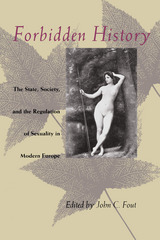
This anthology encompasses a broad range of essays on sexuality spanning European history from the fifteenth century to the present. The topics in this collection of fifteen essays have both historic importance and current relevance. All crucial issues in the regulation of sexuality are addressed, from incest to infanticide, from breast-feeding and women's sexuality to female prostitution, from pornography to reproductive politics, and from the first homosexual rights movement to AIDS.
Contributions from a diverse group of prominent scholars representing a variety of disciplines are included in this anthology. Essays by Randolph Trumbach on "Sex, Gender, and Identity in Modern Culture: Male Sodomy and Female Prostitution in Enlightenment London"; Ruth Perry on "Colonizing the Breast: Sexuality and Maternity in Eighteenth Century England"; Theo van der Meer on "Female Same-Sex Offenders in Late Eighteenth Century Amsterdam"; Robin Ann Sheets on "Pornography, Fairy Tales, and Feminism: Angela Carter's 'The Bloody Chamber'"; and James W. Jones on "Discourses on and of AIDS in West Germany, 1986-1990."
Offering the most up-to-date scholarship from a significant and growing field, this collection is essential for both students and faculty in social history, family history, women's and gender studies, gay studies, sociology and literature.
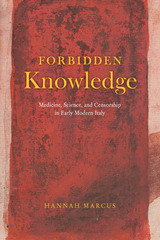
Forbidden Knowledge explores the censorship of medical books from their proliferation in print through the prohibitions placed on them during the Counter-Reformation. How and why did books banned in Italy in the sixteenth century end up back on library shelves in the seventeenth? Historian Hannah Marcus uncovers how early modern physicians evaluated the utility of banned books and facilitated their continued circulation in conversation with Catholic authorities.
Through extensive archival research, Marcus highlights how talk of scientific utility, once thought to have begun during the Scientific Revolution, in fact, began earlier, emerging from ecclesiastical censorship and the desire to continue to use banned medical books. What’s more, this censorship in medicine, which preceded the Copernican debate in astronomy by sixty years, has had a lasting impact on how we talk about new and controversial developments in scientific knowledge. Beautiful illustrations accompany this masterful, timely book about the interplay between efforts at intellectual control and the utility of knowledge.

A social anthropologist, Martin Ottenheimer questioned U.S. laws against cousin marriage because his international research into marriage patterns showed no European countries prohibit such unions. He examines the historical development of U.S. laws governing marriage, contrasts them with European laws, and analyzes the genetic implications of first cousin marriage. Modern genetic evidence, Ottenheimer says, doesn't support the concept that children of these unions are at any special risk.
Ottenheimer's book, the only volume available that deals with kinship in this way, will challenge readers and give them much to consider and discuss.
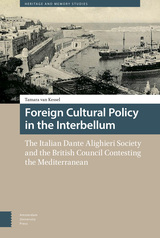

Every year hundreds of students from all over the world come to study in Utrecht. On the occasion of the 375th anniversary of the founding of Utrecht University, foreign students and alumni were invited to reflect on Dutch culture as they had experienced it in their university years there. This book collects the best of the essays they wrote; the result is a unique and fascinating contribution to the study of Dutch culture. These essays offer not only an intimate portrait of the students’ experiences, but also a fresh perspective on the remarkable, frustrating, and fascinating features of Dutch culture.
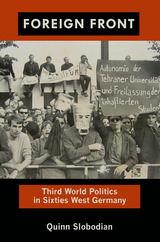

In May 1829, strange reports surfaced from the Ariège department in the French Pyrenees, describing male peasants, bizarrely dressed in women’s clothes, gathering in the forests at night to chase away state guards and charcoal-makers. This was the raucous War of the Demoiselles, a protest against the national French Forest Code of 1827, which restricted peasants’ rights to use state and private forests.
Peter Sahlins unravels the fascinating story of this celebrated popular uprising, and in his telling captures the cultural, historical, and political currents that swept the countryside during France’s July 1830 Revolution. Sahlins explains how and why the Ariège peasants drew on the practices and rituals of folk culture, as well as on a revolutionary tradition, to defend their inherited rights to the forest. To explore these rights and their expression, he delves into the history of forest management, of peasant conflicts with the state, and of popular culture—particularly the disputed history of Carnival and of local rituals of justice.
Sahlins also sheds new light on the French revolutionary tradition and the “Three Glorious Days” of July 1830. The drama and symbolism of the War of the Demoiselles have inspired nearly a dozen plays, novels, films, and even a comic book. Using the concepts of anthropology and cultural studies as transport, Sahlins moves from this rich event to the wider worlds of peasant society in France. Focusing on the years from 1829 to 1832 but drawing on sources since the sixteenth century, his book should captivate social, cultural, and political historians of both early modern and modern Europe.
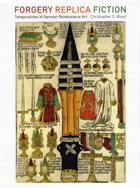
But Wood shows that over the course of the fifteenth and early sixteenth centuries, emerging replication technologies—such as woodcut, copper engraving, and movable type—altered the relationship between artifacts and time. Mechanization highlighted the artifice, materials, and individual authorship necessary to create an object, calling into question the replica’s ability to represent a history that was not its own. Meanwhile, print catalyzed the new discipline of archaeological scholarship, which began to draw sharp distinctions between true and false claims about the past. Ultimately, as forged replicas lost their value as historical evidence, they found a new identity as the intentionally fictional image-making we have come to understand as art.
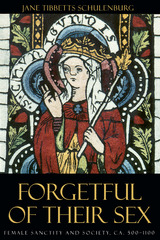
"A tremendous piece of scholarship. . . . This journey through more than 2,000 saints is anything but dull. Along the way, Schulenburg informs our ideas regarding the role of saints in the medieval psyche, gender-specific identification, and the heroics of virginity." —Library Journal
"[This book] will be a kind of 'roots' experience for some readers. They will hear the voices, haunted and haunting, of their distant ancestors and understand more about themselves." —Christian Science Monitor
"This fascinating book reaches far beyond the history of Christianity to recreate the 'herstory' of a whole gender." —Kate Saunders, The Independent
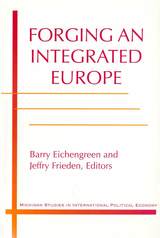
In examining these issues, the writers consider such prob-lems as the trade-off between the benefits of international economic cooperation and the ability to pursue domestic welfare policies; how to increase the political accountability of the institutions of the EU; and how the EU can both be enlarged in membership and deepened in terms of the powers given community institutions.
The contributors are Steven Arndt, Peter Bofinger, Christian de Boisseu, Michele Fratianni, Geoffrey Garrett, Jurgen von Hagen, Ander Todal Jenssen, Ken Kletzer, Lisa Martin, Jonathan Moses, Jean Pisani-Ferry, and Michael Wallerstein, in addition to the editors.
Barry Eichengreen is Professor of Economics, University of California, Berkeley. Jeffry Frieden is Professor of Government, Harvard University.
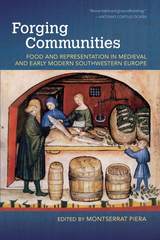
This interdisciplinary study of food in medieval and early modern communities connects threads of history conventionally examined separately or in isolation. The intersection of foodstuffs with politics, religion, economics, and culture enhances our understanding of historical developments and cultural continuities through the centuries, giving insight that today, as much as in the past, we are what we eat and what we eat is never devoid of meaning.

In 1811, deaf student Ferdinand Berthier commenced his education at the National Institute for the Deaf in Paris under its director Abbé Sicard and his teachers Auguste Bébian, Jean Massieu, and Laurent Clerc. Their tutelage eventually led Berthier to join the faculty at the Institute and become a life-long proponent of sign language and Deaf culture. Berthier earned fame for instituting the famous silent banquets in Paris in 1834. He also learned to advance his agenda by writing biographies of important figures who advocated sign over oralism to educate deaf French students. Forging Deaf Education in Nineteenth-Century France offers the first translation of Berthier’s biographical sketches of the four men above who influenced him most.
Berthier wrote first about Bébian in 1839, timed to advocate sign language for teaching deaf students after the death of the pro-oralism Institute Director Désiré Ordinaire. Berthier extolled Bébian’s linguistic acumen and his educational philosophy. In later sketches, however, he described Sicard and Massieu in positive terms, but also criticized them for supporting “methodical” signing that conformed to spoken language conventions. In contrast, he lauded Clerc in his portrayal for using “natural” signing to teach deaf students. The clarity of these translations will introduce a brand new audience to Berthier’s biographies shaped by his unswerving beliefs about Deaf French education.
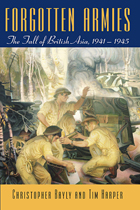
In the early stages of the Second World War, the vast crescent of British-ruled territories stretching from India to Singapore appeared as a massive Allied asset. It provided scores of soldiers and great quantities of raw materials and helped present a seemingly impregnable global defense against the Axis. Yet, within a few weeks in 1941-42, a Japanese invasion had destroyed all this, sweeping suddenly and decisively through south and southeast Asia to the Indian frontier, and provoking the extraordinary revolutionary struggles which would mark the beginning of the end of British dominion in the East and the rise of today's Asian world.
More than a military history, this gripping account of groundbreaking battles and guerrilla campaigns creates a panoramic view of British Asia as it was ravaged by warfare, nationalist insurgency, disease, and famine. It breathes life into the armies of soldiers, civilians, laborers, businessmen, comfort women, doctors, and nurses who confronted the daily brutalities of a combat zone which extended from metropolitan cities to remote jungles, from tropical plantations to the Himalayas. Drawing upon a vast range of Indian, Burmese, Chinese, and Malay as well as British, American, and Japanese voices, the authors make vivid one of the central dramas of the twentieth century: the birth of modern south and southeast Asia and the death of British rule.
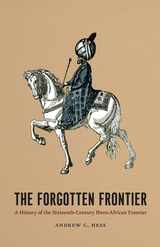
The sixteenth-century Mediterranean witnessed the expansion of both European and Middle Eastern civilizations, under the guises of the Habsburg monarchy and the Ottoman empire. Here, Andrew C. Hess considers the relations between these two dynasties in light of the social, economic, and political affairs at the frontiers between North Africa and the Iberian peninsula.
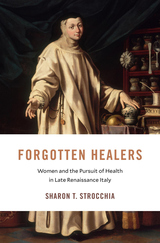
Winner of the Margaret W. Rossiter History of Women in Science Prize
A new history uncovers the crucial role women played in the great transformations of medical science and health care that accompanied the Italian Renaissance.
In Renaissance Italy women played a more central role in providing health care than historians have thus far acknowledged. Women from all walks of life—from household caregivers and nurses to nuns working as apothecaries—drove the Italian medical economy. In convent pharmacies, pox hospitals, girls’ shelters, and homes, women were practitioners and purveyors of knowledge about health and healing, making significant contributions to early modern medicine.
Sharon Strocchia offers a wealth of new evidence about how illness was diagnosed and treated, whether by noblewomen living at court or poor nurses living in hospitals. She finds that women expanded on their roles as health care providers by participating in empirical work and the development of scientific knowledge. Nuns, in particular, were among the most prominent manufacturers and vendors of pharmaceutical products. Their experiments with materials and techniques added greatly to the era’s understanding of medical care. Thanks to their excellence in medicine urban Italian women had greater access to commerce than perhaps any other women in Europe.
Forgotten Healers provides a more accurate picture of the pursuit of health in Renaissance Italy. More broadly, by emphasizing that the frontlines of medical care are often found in the household and other spaces thought of as female, Strocchia encourages us to rethink the history of medicine.

In 1894, on the eve of the French conquest of Morocco, a young Muslim mystic named Muḥammad al-Kattānī decided to abandon his life of asceticism to preach Islamic revival and jihad against the French. Ten years later, al-Kattānī mobilized a socially diverse coalition of Moroccans who called for resistance against French colonization.
In 1909, he met a violent death at the hands of the same Moroccan anti-colonialists he had empowered through his activism. Today, the government of Morocco regards al-Kattānī’s story as subversive, and he has virtually disappeared from the narratives of the early Moroccan anti-colonialism and nationalism. Despite this silencing, al-Kattānī’s remarkable personal transformation and sacrifice is at the heart of the events that, although ultimately failing to prevent French rule, gave birth to Moroccan nationalism and to modern concepts of Moroccan political power and authority.
Forgotten Saints draws on a diverse collection of previously unknown primary sources to narrate the vivid story of al-Kattānī and his virtual disappearance from accounts of modern Moroccan history.
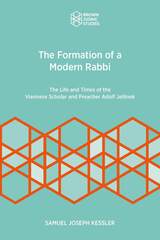
An intellectual biography that critically engages Adolf Jellinek’s scholarship and communal activities
Adolf Jellinek (1821–1893), the Czech-born, German-educated, liberal chief rabbi of Vienna, was the most famous Jewish preacher in Central Europe in the second half of the nineteenth century. As an innovative rhetorician, Jellinek helped mold and define the modern synagogue sermon into an instrument for expressing Jewish religious and ethical values for a new era. As a historian, he made groundbreaking contributions to the study of the Zohar and medieval Jewish mysticism. Jellinek was emblematic of rabbi-as-scholar-preacher during the earliest, formative years of communal synagogues as urban religious space. In a world that was rapidly losing the felt and remembered past of premodern Jewish society, the rabbi, with Jellinek as prime exemplar, took hold of the Sabbath sermon as an instrument to define and mold Judaism and Jewish values for a new world.

Despite their importance during the French Revolution, the Paris middle classes are little known. This book focuses on the family organization and the political role of the Paris commercial middle classes, using as a case study the Faubourg St. Marcel and particularly the parish of St. Médard.
David Garrioch argues that in the late seventeenth and early eighteenth centuries the commercial middle classes were steadfastly local in their family ties and outlook. He shows, too, that they took independent political action in defense of their local position. This gradually changed during the eighteenth century, and the Revolution greatly accelerated the process of integration, at the same time broadening the composition of what may now be termed the Parisian bourgeoisie.
Central to Garrioch's argument is the idea that family, politics, and power are intimately connected. He shows the centrality of kinship to local politics in the first half of the eighteenth century, and the way new family structures were related to changes in the nature of politics even before the Revolution. Among the many important issues considered are birth control, the role of women, the importance of lineage, the spatial limits of middle-class lives, and the language and secularization of politics.
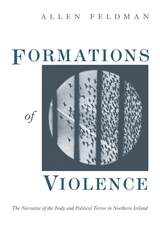
"A sophisticated and persuasive late-modernist political analysis that consistently draws the reader into the narratives of the author and those of the people of violence in Northern Ireland to whom he talked. . . . Simply put, this book is a feast for the intellect"—Thomas M. Wilson, American Anthropologist
"One of the best books to have been written on Northern Ireland. . . . A highly imagination and significant book. Formations of Violence is an important addition to the literature on political violence."—David E. Schmitt, American Political Science Review
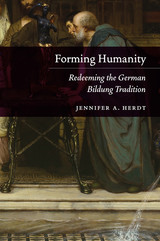
Kant’s proclamation of humankind’s emergence from “self-incurred immaturity” left his contemporaries with a puzzle: What models should we use to sculpt ourselves if we no longer look to divine grace or received authorities? Deftly uncovering the roots of this question in Rhineland mysticism, Pietist introspection, and the rise of the bildungsroman, Jennifer A. Herdt reveals bildung, or ethical formation, as the key to post-Kantian thought. This was no simple process of secularization, in which human beings took responsibility for something they had earlier left in the hands of God. Rather, theorists of bildung, from Herder through Goethe to Hegel, championed human agency in self-determination while working out the social and political implications of our creation in the image of God. While bildung was invoked to justify racism and colonialism by stigmatizing those deemed resistant to self-cultivation, it also nourished ideals of dialogical encounter and mutual recognition. Herdt reveals how the project of forming humanity lives on in our ongoing efforts to grapple with this complicated legacy.
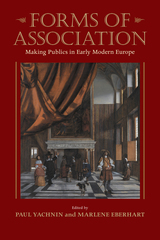
Forms of Association grows out of the "Making Publics: Media, Markets, and Association in Early Modern Europe" (MaPs) project, funded by the Social Sciences and Humanities Research Council of Canada. This scholarly initiative convened an interdisciplinary research team to consider how "publics"—new forms of association built on the shared interests of individuals—developed in Europe from 1500 to 1700. Drawing on a wide array of texts and histories, including the plays of Shakespeare, the legend of Robin Hood, paintings, and music as well as English gossip about France, the contributors develop a historical account of what publics were in early modern Europe. This collaborative study provides a dynamic way of understanding the political dimensions of artistic and intellectual works and opens the way toward a new history of early modernity.
Until his death in 2008, the great Renaissance scholar Richard Helgerson was a key participant in the MaPs project. The scholars featured in this volume originally met in Montreal to engage in a critical, commemorative conversation about Helgerson's work, the issues and questions coming out of the MaPs project, and how Helgerson's thinking advanced and could in turn be advanced by MaPs. This collection represents the fruits of that conversation.
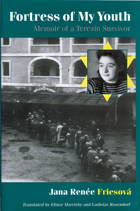
Jana Renée Friesová was fifteen when she was imprisoned by the Nazis in the Czech ghetto town of Terezín. Her memoir tells the poignantly familiar story of a young girl who, even under the most abominable circumstances, engages in intense adolescent friendships, worries with her companions over her looks, and falls in love.
Anne Frank’s diary ends with deportation to a concentration camp; Fortress of My Youth, in contrast, takes the reader deep into the horrors of daily life in a camp that were faced by a young girl and her family. But Friesová also tells of love, joy, sacrifice, and the people who shared in the most profound experiences of her life.

The eleventh-century monk Ekkehard IV’s Fortune and Misfortune at Saint Gall, part of the chronicles of the famous Swiss abbey, is a treasure trove of medieval monastic life. Saint Gall’s records span its humble beginnings in the early seventh century to the late Middle Ages, with Ekkehard’s contribution covering the 880s to 972, near the end of the monastery’s two-century-long golden age. Its unforgettable tales, sometimes at odds with the historical record, contain sharp flashes of Ekkehard’s signature humor—when, for instance, a spying abbot from a neighboring monastery is caught hiding in the latrine. Ekkehard also shows how the abbey’s role as a spiritual haven could be compromised by worldly ties, including close associations with the powerful Carolingian and Ottonian courts. He bears witness to the struggles of the tenth-century church reform movement, when Emperor Otto I dispatched investigators to uncover Saint Gall’s deviations from the Rule of Saint Benedict.
This volume publishes the Latin text alongside its first complete English translation.
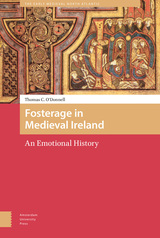
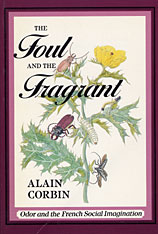
Table of Contents:
Introduction
Part One: The Perceptual Revolution or the Sense of Smell on Trial
1. Air and the Threat of the Putrid
2. The Extremes of Olfactory Vigilance
3. Social Emanations
4. Redefining the Intolerable
5. The New Calculus of Olfactory Pleasure
Part Two: Purifying Public Space
6. The Tactics of Deodorization
7. Odors and the Physiology of the Social Order
8. Policy and Pollution
Part Three: Smells, Symbols, and Social Representations
9. The Stench of the Poor
10. Domestic Atmospheres
11. The Perfumes of Intimacy
12. The Intoxicating Flask
13. "Laughter in a Bead of Sweat"
14. The Odors of Paris
Conclusion
Notes
Index
Reviews of this book:
[This book] is not only serious, but interesting and important; one of those studies that profoundly alters our understanding of both social life and history.
--Joan W. Scott, New York Times Book Review
Reviews of this book:
At once encyclopedic and impressionistic, The Foul and the Fragrant is...a masterful exposition of odors and the perception of odors from 1750 to the "Pasteurian revolution" of the late nineteenth century...It is an important and, at times, fascinating voyage...Exploring with imagination and audacity the changing role of smell in the anxieties and antagonisms of the modern world, Corbin reminds us that social history, too long sanitized and too often abstract, must make room for the senses.
--Michael Burns, Los Angeles Times Book Review
Reviews of this book:
The story has never been told more brilliantly, nor with such verve and perceptiveness. That alone would make Corbin's book worth reading, but one may read it as well for a deeper understanding of the roots of modern urban anxieties about the unwholesome...Corbin's book is a tour de force.
--Simon Schama, New Republic

Foundations of the Portuguese Empire, 1415-1580 was first published in 1977. Minnesota Archive Editions uses digital technology to make long-unavailable books once again accessible, and are published unaltered from the original University of Minnesota Press editions.
This account traces the history of the Portuguese overseas discoveries, following the expansion into the Atlantic island, the Madeiras, and the Azores. It continues the account with the history of Portuguese discoveries along the African coast, at Guinea, the Congo, and Good Hope, then follows the voyages of Vasco da Gama to India and to Cabra, Brazil, and the expansion in the early years of the sixteen century to Malacca, China, and the East Indies. The volume presents not only a useful narrative of the spread of Portuguese empire but also new interpretations and analyses of the Portuguese overseas history.
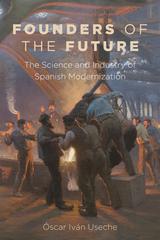


The essays in this volume focus on the different aspects of Italian gardens of the sixteenth and seventeenth centuries. This volume is divided into two parts, with the first part concentrating on the decorations in Roman gardens of the sixteenth centuries, especially the fountains and statue collections, their iconographic programs, and their relationship to contemporary and ancient literature.
The second half of the volume considers two particular sites. The first, a Savoy duke’s villa, is considered through the history of its construction and its relationship to contemporary festivity architecture. The second essay considers a secret garden at the Palazzo Barberini in the 1630s. Also included are illustrations and text from three Barberini manuscripts documenting the plants used in this garden.

In this last book by the late Donald Pitkin, author of The House that Giacomo Built, comes a story of the Schorcht family, through whose fortunes and struggles one can see the transformations of Germany through the long twentieth century.
Each chapter of Four Germanys is reflective of generational rather than historical time. In 1922, Edwin Schorcht inherited his family farm, and in Part One, Pitkin traces the derivation of this farmstead. Part Two focuses on Schorcht’s children who came of age in Hitler’s Germany. Part Three has the Schorchts growing up in the Ulbricht years (1950–73) of the German Democratic Republic. The book concludes with the great-granddaughter, Maria, looking back to the past in relation to the new Germany that history had bequeathed her.
Ultimately, Four Germanys reflects the impact of critical historical events on ordinary East Germans while it also reveals how one particular family managed its own historical adaptation to these events.
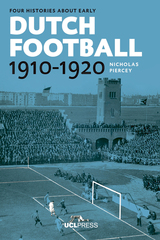
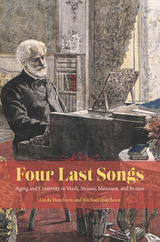
Giuseppe Verdi (1813–1901), Richard Strauss (1864–1949), Olivier Messiaen (1908–92), and Benjamin Britten (1913–76) all wrote operas late in life, pieces that reveal unique responses to the challenges of growing older. Verdi’s Falstaff, his only comedic success, combated Richard Wagner’s influence by introducing young Italian composers to a new model of national music. Strauss, on the other hand, struggling with personal and political problems in Nazi Germany, composed the self-reflexive Capriccio, a “life review” of opera and his own legacy. Though it exhausted him physically and emotionally, Messiaen at the age of seventy-five finished his only opera, Saint François d’Assise, which marked the pinnacle of his career. Britten, meanwhile, suffering from heart problems, refused surgery until he had completed his masterpiece, Death in Venice. For all four composers, age, far from sapping their creative power, provided impetus for some of their best accomplishments.
With its deft treatment of these composers’ final years and works, Four Last Songs provides a valuable look at the challenges—and opportunities—that present themselves as artists grow older.

Yet recent theoretical work has called for their reappraisal. Anachronisms, previously condemned as errors in the order of time, are being hailed as alternatives to that order. Conversely chronology and periods, its mainstays, are now charged with having distorted the past they have been entrusted to represent, and secularization, once considered the driving force of the modern era, no longer holds sway over the past or the present.
In light of this reappraisal, can Shakespeare studies continue unshaken? This is the question Four Shakespearean Period Pieces takes up, devoting a chapter to each term: on the rise of anachronism, the chronologizing of the canon, the staging of plays “in period,” and the use of Shakespeare in modernity’s secularizing project.
To read these chapters is to come away newly alert to how these fraught concepts have served to regulate the canon’s afterlife. Margreta de Grazia does not entirely abandon them but deftly works around and against them to offer fresh insights on the reading, editing, and staging of the author at the heart of our literary canon.

The rich and complex texture of working-class neighborhoods in eighteenth-century Paris comes vibrantly alive in this collage of the experiences of ordinary people—men and women, rich and poor, masters and servants, neighbors and colleagues. Exploring three arenas of conflict and solidarity—the home, the workplace, and the street—Arlette Farge offers the reader an intimate social history, bringing long-dead citizens and vanished social groups back to life with sensitivity and perception.
Fragile Lives reconstructs the rhythms of this population's daily existence, the way they met, formed relationships and broke them off, conducted their affairs in the community, and raised their young. Farge follows them into the factory and describes the ways they organized to improve their working conditions, and how they were controlled by the authorities. She shows how these Parisians behaved in the context of collective events, from festive street spectacles to repressive displays of power by the police. As the author examines interwoven lives as revealed in judicial records, we come to know and understand the criminals and the underworld of the time; the situation of women as lovers, wives, or prostitutes; anxieties about food and drink, and the rules of conduct in a “fragile” society. Elegantly written and skillfully translated, Fragile Lives is a book for the curious general reader and for those interested in social and cultural history.
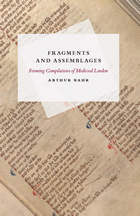

Today, William of Auvergne (1180?–1249) is remembered for his scholarship about the afterlife as well as the so-called Trial of the Talmud. But the medieval bishop of Paris also left behind nearly 600 sermons delivered to all manner of people—from the royal court to the poorest in his care. In Fragments of a World, Lesley Smith uses these sermons to paint a vivid picture of this extraordinary cleric, his parishioners, and their bustling world. The first modern biography of the influential teacher, bishop, and theologian, Fragments of a World casts a new image of William of Auvergne for our times—deeply attuned to both the spiritual and material needs of an ever-changing populace in the medieval city.
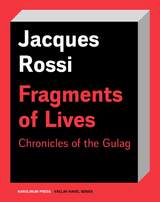
An impassioned reminder to always question one’s beliefs, to have the courage to give up one’s illusions at the risk of one’s life, Fragments of Lives lays bare, with acute observations and biting wit, the falsity of the Soviet utopia that transformed Rossi’s home into a “huge Potemkin village, a farcical sham dissimulating oceans of mud and blood.”
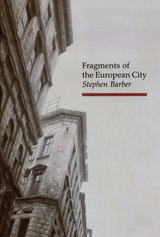
Taking as its subject the "intricately assembled, relentlessly disassembling metropolitan screen", it charts the virulent implosions of culture, the distortions and violence that give city-living its fractured and hallucinatory quality.
Provocatively written as a series of inter-locking poetic fragments, the text evokes the formation of metropolitan "identity" as it ricochets between the physical surface of the city and the vulnerable but manipulating consciousness of city dwellers.
Barber has discovered a powerful new vocabulary – a vocabulary charged with the visual and sonic impact of the cinema. Like the city, the text pulsates, creatively chaotic, raw and exhilarating.
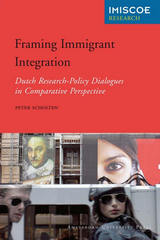
Debates on immigrant integration often center on “national models of integration,” a concept that reflects the desire of both researchers and policy makers to find common ground. This book challenges the idea that there has ever been a coherent or consistent Dutch model of integration and asserts that though Dutch society has long been seen as exemplary for its multiculturalism—and argues that the incorporation of migrants remains one of the country’s most pressing social and political concerns. In addition to an analysis of how immigration is framed and reframed through diverse dialogues, the author provides a highly dynamic overview of integration policy and its evolution alongside migration research.
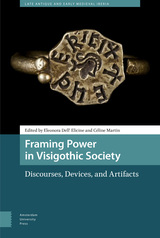
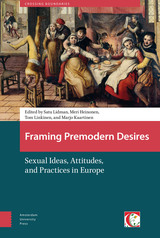
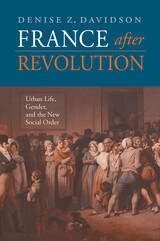
The decades following the French Revolution saw unprecedented political and social experimentation. As the Napoleonic and Restoration regimes attempted to build a stable order, ordinary city dwellers began to create their own sense of how society operated through everyday activities. Interactions between men and women--in theaters, cafes, and other public settings--helped to fashion new social norms.
In this extensively researched work, Denise Z. Davidson offers a powerful reevaluation of the effects of the French Revolution, especially on women. Arguing against the view that the Revolution forced women from the public realm of informed political discussion, Davidson demonstrates that women remained highly visible in urban public life. Women of all classes moved out of the domestic sphere to participate in the spectacle of city life, inviting frequent commentary on their behavior. This began to change only in the 1820s, when economic and social developments intensified class distinctions and made the bourgeoisie fear the "dangerous classes."
This book provides an important corrective to prevailing views on the ramifications of the French Revolution, while shedding light on how ordinary people understood, shaped, and contested the social transformations taking place around them.

An examination of the complicated history between France and Algeria since the latter’s independence.
While most related studies concentrate on the colonial era and Algeria's War of Independence, France and Algeria details the nations' postcolonial relationship. Phillip Naylor provides a philosophical approach, contending that France reformulated, rather than repudiated, “essential” strategic values during decolonization. It thus continued to pursue grandeur and independence, especially with regard to the Third World and Algeria, an essentialism that expedited France’s postcolonial transformation. But as a new nation, Algeria needed to pursue the “existential” project of self-definition. It became involved in state-building while also promulgating socialism, and it recognized how French oil concessions in the Sahara impeded its independence, leading to the industry's postcolonial decolonization. Finally, the postcolonial relationship has featured a human dimension involving immigrants, pieds-noirs (colonial settlers), and harkis (Algerian soldiers loyal to France), all of them central to bilateral relations.
In this revised and updated edition of his seminal work, first published over twenty years ago, Naylor expands his coverage of the decolonization era, drawing on new information while continuing to study the ever-evolving relationship between the two countries. These new additions expose the continually shifting relations of power, perception, and identity between the two states.
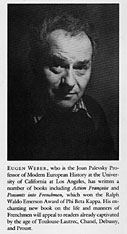
The end of the nineteenth century in France was marked by political scandals, social unrest, dissension, and “decadence.” Yet the fin de siècle was also an era of great social and scientific progress, a time when advantages previously reserved for the privileged began to be shared by the many. Public transportation, electrical illumination, standard time, and an improved water supply radically altered the life of the modest folk, who found time for travel and leisure activities—including sports such as cycling. Change became the nature of things, and people believed that further improvement was not only possible but inevitable.
In this thoroughly engaging history, Eugen Weber describes ways of life, not as recorded by general history, but as contemporaries experienced them. He writes about political atmosphere and public prejudices rather than standard political history. Water and washing, bicycles and public transportation engage him more than great scientific discoveries. He discusses academic painting and poster art, the popular stage and music halls, at greater length than avant-garde and classic theater or opera. In this book the importance of telephones, plumbing, and central heating outranks such traditional subjects as international developments, the rise of organized labor, and the spread of socialism.
Weber does not neglect the darker side of the fin de siècle. The discrepancy between material advance and spiritual dejection, characteristic of our own times, interests him as much as the idea of progress, and he reminds us that for most people the period was far from elegant. In the lurid context of military defeat, political instability, public scandal, and clamorous social criticism, one had also to contend with civic dirt, unsanitary food, mob violence, and the seeds of modern-day scourges: pollution, drugs, sensationalism, debased art, the erosion of moral character. Yet millions of fin de siècle French lived as only thousands had lived fifty years before; while their advance was slow, their right to improvement was conceded.

A panorama of a whole civilization, a world on the verge of cataclysm, unfolds in this magisterial work by the foremost historian of eighteenth-century France. Since Tocqueville’s account of the Old Regime, historians have struggled to understand the social, cultural, and political intricacies of this efflorescence of French society before the Revolution. France in the Enlightenment is a brilliant addition to this historical interest.
France in the Enlightenment brings the Old Regime to life by showing how its institutions operated and how they were understood by the people who worked within them. Daniel Roche begins with a map of space and time, depicting France as a mosaic of overlapping geographical units, with people and goods traversing it to the rhythms of everyday life. He fills this frame with the patterns of rural life, urban culture, and government institutions. Here as never before we see the eighteenth-century French “culture of appearances”: the organization of social life, the diffusion of ideas, the accoutrements of ordinary people in the folkways of ordinary living—their food and clothing, living quarters, reading material. Roche shows us the eighteenth-century France of the peasant, the merchant, the noble, the King, from Paris to the provinces, from the public space to the private home.
By placing politics and material culture at the heart of historical change, Roche captures the complexity and depth of the Enlightenment. From the finest detail to the widest view, from the isolated event to the sweeping trend, his masterly book offers an unparalleled picture of a society in motion, flush with the transformation that will be its own demise.
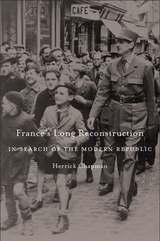
At the end of World War II, France’s greatest challenge was to repair a civil society torn asunder by Nazi occupation and total war. Recovery required the nation’s complete economic and social transformation. But just what form this “new France” should take remained the burning question at the heart of French political combat until the Algerian War ended, over a decade later. Herrick Chapman charts the course of France’s long reconstruction from 1944 to 1962, offering fresh insights into the ways the expansion of state power, intended to spearhead recovery, produced fierce controversies at home and unintended consequences abroad in France’s crumbling empire.
Abetted after Liberation by a new elite of technocratic experts, the burgeoning French state infiltrated areas of economic and social life traditionally free from government intervention. Politicians and intellectuals wrestled with how to reconcile state-directed modernization with the need to renew democratic participation and bolster civil society after years spent under the Nazi and Vichy yokes. But rather than resolving the tension, the conflict between top-down technocrats and grassroots democrats became institutionalized as a way of framing the problems facing Charles de Gaulle’s Fifth Republic.
Uniquely among European countries, France pursued domestic recovery while simultaneously fighting full-scale colonial wars. France’s Long Reconstruction shows how the Algerian War led to the further consolidation of state authority and cemented repressive immigration policies that now appear shortsighted and counterproductive.
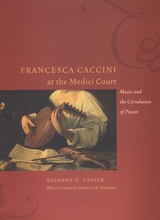
Suzanne G. Cusick argues that Caccini’s career depended on the usefulness of her talents to the political agenda of Grand Duchess Christine de Lorraine, Tuscany’s de facto regent from 1606 to 1636. Drawing on Classical and feminist theory, Cusick shows how the music Caccini made for the Medici court sustained the culture that enabled Christine’s power, thereby also supporting the sexual and political aims of its women.
In bringing Caccini’s surprising story so vividly to life, Cusick ultimately illuminates how music making functioned in early modern Italy as a significant medium for the circulation of power.
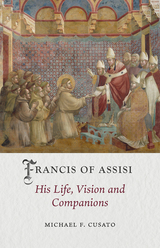
This book is an accessible biography of Francis of Assisi, founder of the Franciscan religious order and one of the most venerated figures in Christianity. In it, Michael F. Cusato explores how Francis and his early brothers embraced a life of poverty in solidarity with the lowest ranks of society, preaching a message of justice and dignity for all. He examines how and why Francis’s vision ultimately expanded to embrace non-Christians and Muslims in particular following Francis’s celebrated encounter with the Sultan al-Malik al-Kamil in 1219. Finally, Cusato considers the clash between Francis and newer members of his Order, his reception of the stigmata, and his final years defending his vision among his own brothers, all while living as an exemplar of the gospel life.
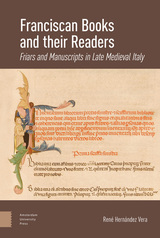
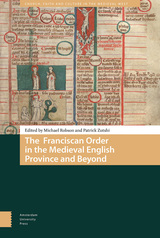

A comprehensive biography of the Seceretary of State and Comendador for the kingdom of Castile under Emperor Charles I of Spain.
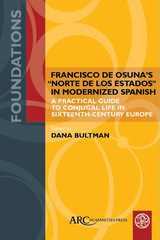
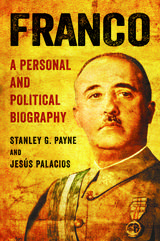
Franco: A Personal and Political Biography depicts his early life, explains his career and rise to prominence as an army officer who became Europe's youngest interwar brigadier general in 1926, and then discusses his role in the affairs of the troubled Second Spanish Republic (1931–36). Stanley G. Payne and Jesús Palacios examine in detail how Franco became dictator and how his leadership led to victory in the Spanish Civil War that consolidated his regime. They also explore Franco's role in the great repression that accompanied the Civil War—resulting in tens of thousands of executions—and examine at length his controversial role in World War II. This masterful biography highlights Franco's metamorphoses and adaptations to retain power as politics, culture, and economics shifted in the four decades of his dictatorship.
Best Books for General Audiences, selected by the American Association of School Librarians
Best Books for General Audiences, selected by the Public Library Reviewers
“An important book, destined to elicit a heated academic debate surrounding the man who ruled Spain for forty years and whose figure still casts a long shadow four decades after his death.”—Journal of Modern History
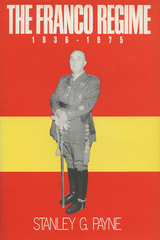
The history of modern Spain is dominated by the figure of Francisco Franco, who presided over one of the longest authoritarian regimes of the twentieth century. Between 1936 and the end of the regime in 1975, Franco’s Spain passed through several distinct phases of political, institutional, and economic development, moving from the original semi-fascist regime of 1936–45 to become the Catholic corporatist “organic democracy” under the monarchy from 1945 to 1957. Distinguished historian Stanley G. Payne offers deep insight into the career of this complex and formidable figure and the enormous changes that shaped Spanish history during his regime.

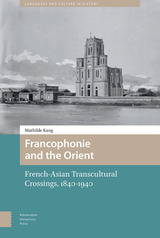
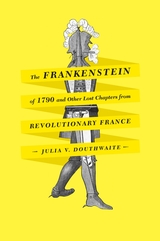
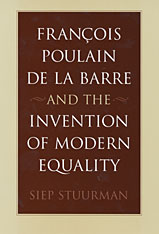
In a tour de force of intellectual history, Siep Stuurman rediscovers the remarkable early Enlightenment figure François Poulain de la Barre. A dropout from theology studies at the Sorbonne, Poulain embraced the philosophy of Descartes, became convinced of the injustice and absurdity of the subjection of women, and assembled an entirely original social philosophy. His writings challenging male supremacy and advocating gender and racial equality are the most radically egalitarian texts to appear in Europe before the French Revolution.
In exploring Poulain's breakthrough, Stuurman sheds new light on the origins of the Enlightenment, the history of feminism, the emergence of rational Christianity, and the social and political implications of Descartes's philosophy. This groundbreaking work, the first comprehensive study of Poulain, brings to life the men and women of the Radical Enlightenment, who pioneered ideas about equality that would shape humankind to this day. Impeccably researched, cogently argued, and lucidly written, this is truly a masterpiece of scholarship.
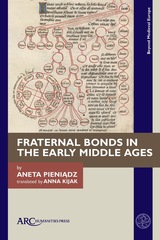

What were the women of Germany doing during the Third Reich? What were they thinking? And what do they have to say a half century later?
In Frauen we hear their voices––most for the first time. Alison Owings interviewed and here records the words of twenty-nine German women who were there: Working for the Resistance. Joining the Nazi Party. Outsmarting the Gestapo. Disliking a Jewish neighbor. Hiding a Jewish friend. Witnessing "Kristallnacht." Witnessing the firebombing of Dresden. Shooting at Allied planes. Welcoming Allied troops. Being a prisoner. And being a guard. The women recall their own and others' enthusiasm, doubt, fear, fury, cowardice, guilt, and anguish.
Alison Owings, in her pursuit of such memories, was invited into the homes of these women. Because she is neither Jewish nor German, and because she speaks fluent colloquial German, many of the women she interviewed felt comfortable enough with her to unlock the past. What they have to say will surprise Americans, just as they surprised the women themselves.
Not since Marcel Ophuls's controversial film The Sorrow and the Pity have we been on such intimate terms with "the enemy." In this case, the story is that of the women, those who did not make policy but were forced to participate in its effects and to witness its results. What they did and did not do is not just a reflection on them and their country––it also leads us to question what actions we might have taken in their place. The interviews do not allow for easy, smug answers.

MacDonald, who is cerebral palsied, recognizes that disability narratives are rarely written by and for disabled people. Therefore his plays, accompanied by critical essays and director’s notes, are a welcome addition to the emerging discourse of Crip theory, and essential reading for disability students and academics alike.

One of the most remarkable personalities of the Middle Ages, Frederick II of Hohenstaufen was born in 1194. His parents—the reigning Holy Roman Emperor and the heiress to the Kingdom of Sicily—belonged to two of the leading ruling families in medieval Europe. The lands controlled by these two families extended from southern Denmark to Sicily, from modern Belgium to Bohemia. Frederick II eventually ruled the joint kingdom, and the story of how he gained and maintained this status is the primary thread running through his life. As a child in Sicily, Frederick was a ward of Pope Innocent III. When he came of age, he sought to be crowned Holy Roman Emperor but only succeeded in 1220 after many years of negotiations with the Vatican, which was reluctant to give up or share power. Resenting the influence and pressure from the papacy, Frederick became its leading opponent. As a result, the new pope, Gregory IX, condemned Frederick as the Antichrist. However, Frederick believed he was a sincere Christian, and led the Sixth Crusade to the Holy Land while under excommunication.

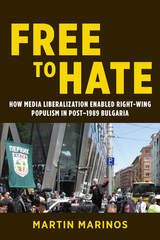
Bulgaria’s media-driven pivot to right-wing populism parallels political developments taking place around the world. Martin Marinos applies a critical political economy approach to place Bulgarian right-wing populism within the structural transformation of the country’s media institutions. As Marinos shows, media concentration under Western giants like Westdeutsche Allgemeine Zeitung and News Corporation have led to a neoliberal turn of commercialization, concentration, and tabloidization across media. The Right have used the anticommunism and racism bred by this environment to not only undermine traditional media but position their own outlets to boost new political entities like the nationalist party Ataka. Marinos’s ethnographic observations and interviews with local journalists, politicians, and media experts add on-the-ground detail to his account. He also examines several related issues, including the performative appeal of populist media and the money behind it.
A timely and innovative analysis, Free to Hate reveals where structural changes in media intersect with right-wing populism.
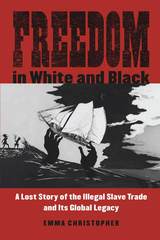
This story can be told because of an exceptional trove of court documents that provides unparalleled insight into one small link in the great, horrific chain of slavery. Emma Christopher follows a trail of evidence across four continents to examine the lives of this barracoon's owners, their workers, and their tragic human merchandise. She reveals how an American, Charles Mason, escaped justice, while British subjects Robert Bostock and John McQueen were arrested. In court five African men—Tamba, Tom Ball, Yarra, Noah, and Sessay—courageously testified against their former owners/captors. They, and 233 other liberated men, women, and children, were relocated to Freetown, Sierra Leone. There they endured harsh lives of "freedom," while the punishment of Bostock and McQueen was fleeting.
From the fragmented facts of these lives, Christopher sheds fascinating light on the early development of the nations of Sierra Leone, Liberia, and Australia (where Bostock and McQueen were banished) and the role of former slaves in combatting the illegal trade.

This book brings the history of slavery in England to light, revealing the powerful untold stories of resistance by enslaved workers from Africa, South Asia, and First-Nations America forced to work in London as sailors and dockworkers, wet-nurses and washerwomen. Featuring a series of original case studies on those enslaved people who escaped captivity, this volume provides a rich source of information about slavery in eighteenth-century mainland Britain and the “freedom seekers” therein. Using maps, photographs, newspaper advertisements, and more, the book details escape routes, the networks of slaveholders, and the community of people of color across the London region.
Freedom Seekers demonstrates that not only were enslaved people present in Restoration London but that white Londoners were intimately involved in the construction of the system of racial slavery, a process traditionally regarded as happening in the colonies rather than the British Isles. Freedom Seekers is an utterly unmissable and important book that seeks to delve into Britain’s colonial past.
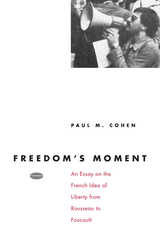
Arranged not according to the lives and times of its protagonists but to the narrative themes and structures they held in common, Cohen’s study discerns a single master narrative of liberty in modern France. He captures these radicals, whose tradition bids them to resist the authority of power structures and public opinion. They denounce bourgeois and utilitarian values, the power of Church and State, and the corrupting influence of everyday politics, and they dream of a revolutionary rupture, a fleeting instant of sometimes violent but always meaningful transgression.
An eloquent and insightful work on French political culture, Freedom's Moment also helps explain how France, even as it has oscillated between political stagnation and crisis, has held onto its faith that liberty, equality, and fraternity remain within its grasp.
Examines the ideas of Rousseau, Robespierre, Stendahl, Michelet, Bergson, Peguy, Sartre, and Foucault.
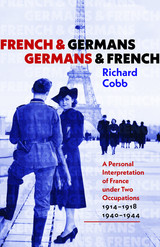

An analytical study of the French apanages from their creation to the end of the Capetian period, this pioneering book offers an explanation of why the French kings began the practice of granting fiefs to their younger sons, and why they introduced the curious inheritance restrictions which limited succession in an apanage to direct heirs of the original holder. The author also examines the connection of the apanages with the royal government in terms of sovereignty, jurisdiction, administration, military obligations, and financial affairs, showing how difficult it was to draw distinctions between the two spheres of government.
Since the original apanages were granted from lands only recently conquered from the English, they had the important practical effect of introducing the notion of French royal authority into areas that had not known it for centuries. People living in these lands became used to the fact that "the king" was the king of France, not of England. A clear understanding of the relationship of the apanages to the monarchy, the author maintains, is at the same time a large step toward an understanding of how the monarchy gained control of France and,ultimately, made a nation out of her fragmented provinces.
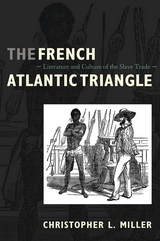
Miller offers a historical introduction to the cultural and economic dynamics of the French slave trade, and he shows how Enlightenment thinkers such as Montesquieu and Voltaire mused about the enslavement of Africans, while Rousseau ignored it. He follows the twists and turns of attitude regarding the slave trade through the works of late-eighteenth- and early-nineteenth-century French writers, including Olympe de Gouges, Madame de Staël, Madame de Duras, Prosper Mérimée, and Eugène Sue. For these authors, the slave trade was variously an object of sentiment, a moral conundrum, or an entertaining high-seas “adventure.” Turning to twentieth-century literature and film, Miller describes how artists from Africa and the Caribbean—including the writers Aimé Césaire, Maryse Condé, and Edouard Glissant, and the filmmakers Ousmane Sembene, Guy Deslauriers, and Roger Gnoan M’Bala—have confronted the aftermath of France’s slave trade, attempting to bridge the gaps between silence and disclosure, forgetfulness and memory.
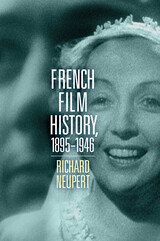
Neupert explains the contexts behind the rise of cinema in France, including groundbreaking work by the Lumière family, Georges Méliès, and Alice Guy; the powerhouse studios of Pathé and Gaumont; directors such as René Clair, Germaine Dulac, Marcel Pagnol, and Jean Renoir; and an array of stars, including Max Linder, Jean Gabin, Josephine Baker, and Michèle Morgan. The first fifty years of French film practice established cinema’s cultural and artistic potential, setting the stage for the global post–World War II explosion in commercial movies and art cinema alike. French film and its rich history remain at the heart of cinematic storytelling and our moviegoing pleasure.
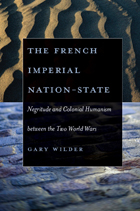
Gary Wilder develops a sophisticated account of the contradictory character of colonial government and examines the cultural nationalism of Negritude as a multifaceted movement rooted in an alternative black public sphere. He argues that interwar France must be understood as an imperial nation-state—an integrated sociopolitical system that linked a parliamentary republic to an administrative empire. An interdisciplinary study of colonial modernity combining French history, colonial studies, and social theory, The French Imperial Nation-State will compel readers to revise conventional assumptions about the distinctions between republicanism and racism, metropolitan and colonial societies, and national and transnational processes.
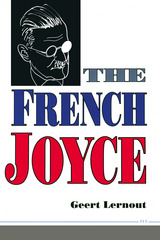
READERS
Browse our collection.
PUBLISHERS
See BiblioVault's publisher services.
STUDENT SERVICES
Files for college accessibility offices.
UChicago Accessibility Resources
home | accessibility | search | about | contact us
BiblioVault ® 2001 - 2024
The University of Chicago Press









